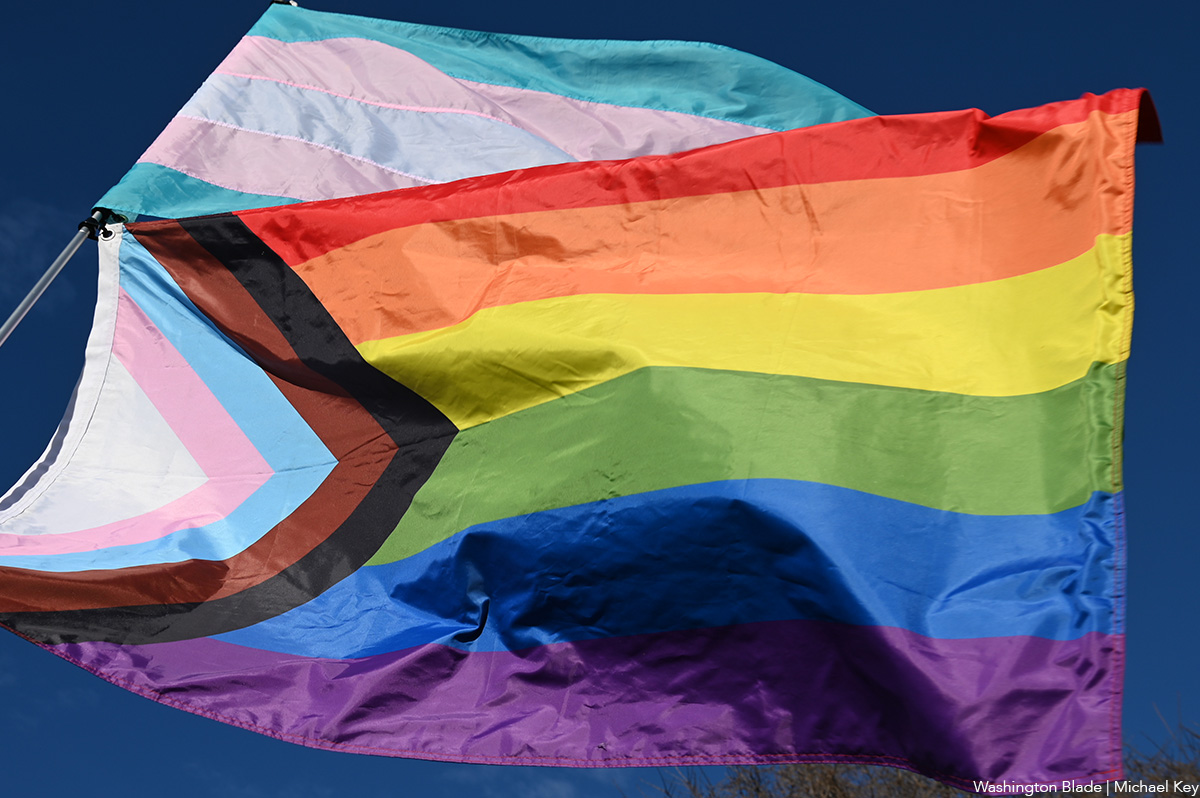Opinions
Media screwing up politics coverage is a disservice to the public
Trump is not a normal candidate and opinions are not news

More evident than ever is how newspapers, and other media, are desperately competing for business. In doing so, they are too often confusing opinion with reporting. While reporters are inserting more opinion in their columns, editorial boards are shying away from their role of endorsing candidates.
The New York Times recently announced it would no longer endorse in any political race except for president. The Times announcement seems a little schizophrenic. They took a strong stand helping to push Joe Biden to step down as a candidate, and stated forcefully they don’t support Trump. Then the publisher, A.G. Sulzberger, writes a lengthy op-ed published in the Washington Post where he “warned of a ‘quiet war’ against the freedom of the press as former President Trump pursues a second White House term with negative rhetoric about the media.”
He laments what Trump could do to free journalism, but seemingly disregards what a MAGA Congress could do to aid him, by having the Times in essence say it wouldn’t endorse against a MAGA congressional, or Senate candidate. He compares Trump to Hungarian Prime Minister Victor Orban and says, “Trump and his allies have hinted at their plans to increase attacks on the media, pointing to the former president’s comments last year in which he said, ‘When I win the presidency of the United States, they [Comcast] and others of the LameStream Media, will be thoroughly scrutinized for their knowingly dishonest and corrupt coverage of people, things and events.’” So, it’s really hard to figure the Times out.
Earlier this month, newspapers controlled by Alden Global Capital said “they would no longer endorse candidates for president, governor and the U.S. Senate. The newspapers in the hedge fund’s portfolio include dozens of dailies like the Chicago Tribune, New York Daily News, Boston Herald, Orlando Sentinel and San Jose Mercury News.” Then the Baltimore Sun said it would no longer make endorsements. Seems like an effort to offend fewer people, and sell more papers.
Mainstream media today are doing a disservice to the American people in how they deal with politics, the 2024 presidential election being a prime example. I want to be open: I write about politics, and the presidential election. I am a lifelong Democrat. But I am a columnist, not a reporter, and there is a huge difference. Columnists like myself share opinions. I try to base my opinions on facts, but some columnists actually use what Kellyanne Conway called, ‘alternative facts.’ Either way, what we columnists write, or say, is opinion.
On the other hand, reporters should always be writing about facts. They can write about what they have seen, or heard from others. They can freely quote someone else’s opinion in their columns, but they should leave their own opinion out. Today, that is often not happening. Too often we see reporters’ personal opinions subtly enter their columns. Then newspaper reporters go on TV, or comment on social media platforms. They share their personal opinions, which calls into question their reporting. Today, editors can take a good column, put a clickbait headline on it to attract attention, and that can often color how people perceive the column. Some of these headlines are not even what the column is actually about. Newspapers actually change a headline from the print edition to their online edition, simply to get more clicks.
The media will have a huge impact on how this election turns out. While they claim to only cover the news, and don’t make it, the reality is the media do much more. They seem to have adopted the role of influencer more than ever before, though they have always done this by determining how much attention they give any one issue, and of course by what they choose to report on. Yet today there is so much competition every outlet, print and TV, seems to feel the need to have a point of view to attract audiences. Seems in some ways contradictory to newspaper editorial boards saying they won’t endorse.
The mainstream media are generally covering this election as if Trump is a candidate like any other who has ever run for president. That is not the case. Many reporters appear to have a hard time dealing with Trump, and seem afraid to be honest when writing about, or talking about, or with him. That is one way to influence the election. When Biden was still in the race there was massive coverage of his age, and missteps, even before his disastrous debate performance. There was rarely a report on him that didn’t append his age and stumbles to his name. After the debate, the media pounced, and it was not just editorial comment. It was a really unusual situation, and covering it was important. But Trump’s lies had often been accepted, as were his stumbles in speeches. Then in the debate, in which Trump lied in every other utterance, that was seemingly forgotten.
Now Biden is out, and Kamala Harris is the nominee. This got wide coverage including, and up to, her choosing Gov. Walz as her running mate. Trump was out of the headlines and that seemed to drive him crazier than normal. But the media seemed to lay off of him for a bit. Now the media are criticizing Harris for a lack of policy papers, or doing interviews with them. I am OK with that, as long as they report Trump also has no real policy papers, except for Project 2025, which he claims isn’t his. The GOP platform is only 16 pages but has gotten little attention. Also, where is the discussion of Trump’s age, he is now the oldest person to ever run for president, and his speeches though loud, are often as embarrassing as was Biden’s debate performance. He can’t focus for more than two sentences at a time and often forgets where he is. Then where is the focus on Trump being a candidate for the highest office of the land, commander in chief, who has been found liable for sexual assault, and is a convicted felon. Aren’t those appellations that should fairly be appended to Trump’s name every time he is written about? These are indisputable facts, as was Biden’s age, always appended to stories about him.
I am not naïve enough to think the right-wing media like Fox News will do this. But I would expect those like the New York Times, Washington Post, ABC, NBC, and CBS, to do better. I would expect them to do to both Harris and Trump the same thing. Call them out when they are lying. When media report on either one’s speech, it is fine if they call out lies, or misstatements, in each. In the debate, if the media questioners refused to call out Trump on his lies, as happened in the Biden/Trump debate, Harris needs to be ready to do so. But it is really the media that has a responsibility to the American voter to do so.
I don’t expect much to change between now and Nov. 5 but can always hope. We will know by Tuesday night if ABC challenged Trump at the debate with tough questions. Did they ask him about being the oldest candidate ever to run for president? Did they ask him if he thinks a convicted felon should be commander in chief? Did they challenge his lies during the debate? I am not holding out much hope for any of this. But I urge readers of, and listeners to, the mainstream media, to at least call them out when they pretend opinion is news, and when they continue to treat Trump as if he is the same as any other candidate to have ever run for president. He is not, and opinion is not news.
Peter Rosenstein is a longtime LGBTQ rights and Democratic Party activist. He writes regularly for the Blade.

Authoritarianism does not announce its arrival. It’s too cowardly for that. It advances quietly, at the margins, testing how much fear and cruelty a community will tolerate and what bystanders will allow to happen to fellow human beings. History shows that queer folks, especially trans people, are often targeted first. That targeting is not incidental. It is intentional.
Defending queer rights is not a niche concern. It is a test of democratic health. A society that allows one group to be targeted will not stop there. Those who come for queer people in the morning are the same that go for educators, journalists, voters, and civil institutions in the afternoon. This is not speculation. It is a well-worn pattern.
Around the world, LGBTQ+ communities are under coordinated attack. In Russia, the so-called “international LGBTQ movement” has been labeled extremist, legally equating queer identity with terrorism. We are seeing distinct echoes of that foreign influence here at home. Elsewhere, governments criminalize queer existence, erase trans people from public life, or force people into silence through intimidation. The sequence is familiar: dehumanizing rhetoric, restrictive policy, and eventually open endorsements of violence. When these warning signs are ignored, repression accelerates.
It would be comforting to believe this is distant or abstract. It is not. In the United States, LGBTQ+ people, including trans people, have sought asylum abroad because they no longer feel safe in our own communities. When our neighbors must leave to feel safe, we have failed our community.
Experts at the Lemkin Institute for Genocide Prevention have warned that trans communities in the United States face serious and escalating danger. Their analysis is grounded in history. Genocide is not only mass killing. It is the systematic destruction of a group’s ability to exist safely and openly. Legal erasure, public demonization, exclusion from institutions, and tolerated harassment are all early stages of that process. History is clear. The time to act is before harm becomes irreversible.
Democratic backsliding rarely arrives with fanfare. It comes through school board votes, bureaucratic rules, elected leaders’ inaction, and symbolic reversals that seem small until they accumulate. This is how erosion takes hold.
In Salisbury, Md., my hometown, that erosion has become visible. The city halted the flying of Pride flags during Pride month and removed our downtown rainbow crosswalk. These were not neutral administrative choices. They sent a clear message to queer residents that their visibility and belonging are unwelcome.
When a community removes symbols that affirm dignity and safety, when books reflecting queer realities are pulled from schools and libraries, when children are excluded from participating in life simply because they are different, it creates harm. It teaches that difference is dangerous. And when politicians and people in positions of responsibility fail to protect trans kids, real harm follows: mental health crises, isolation, and even lives lost.
Pride flags, rainbow crosswalks, inclusive curricula, and supportive policies are not merely symbolic. They communicate that everyone belongs and that discrimination will not be tolerated. Removing them isolates queer people and emboldens those who see community as an exclusive club rather than a shared responsibility.
Queer liberation is not separate from the liberation of the broader community. It is inseparable from it. Living openly as queer challenges systems built on fear, rigid roles, and enforced conformity. When queer people gain ground, everyone gains ground. Each victory for queer liberation strengthens democracy itself.
This is how we know progress is possible. Every time a Pride flag stays flying. Every time a crosswalk remains painted. Every time a local ordinance protects gender identity. Every time a school affirms a student’s dignity. These are not small wins. Liberation grows through accumulation.
National politics can feel chaotic and overwhelming. Federal institutions are slow, complex, and distant. But democratic defense does not begin there. It begins locally, when neighbors show up to town halls, demand accountability, and refuse to let bigotry shape policy. It does not take extraordinary power to protect a city council chamber or a school board meeting. It takes people willing to stand up. It takes bystanders willing to step in.
This is the moment to act. Silence enables erosion. Action creates momentum. The question is not whether change is possible. It is whether you are willing to claim it.
Queer liberation is your liberation. When we defend the most targeted among us, we defend the future we all share. Every Pride flag flown, every rainbow crosswalk returned, every book left on the shelf, and every policy that affirms dignity sends a message far beyond town limits. It tells the world that democracy is being defended here.
Local victories are global victories. And every one of them matters.
Will Fries. is a Maryland communications strategist with experience in multiple major presidential campaigns.
Opinions
The felon in the White House must be stopped
Are there any decent Republican members of Congress left?

We are up shit’s creek if the felon in the White House actually thinks he has a Nobel Peace Prize. If he believes he deserves one, or Venezuelan opposition leader Maria Corina Machado had any other reason to give him hers, than it was easier, and less degrading, than going on her knees to him, as a number of men already have. I don’t know if she understood how many millions the medal could be worth. Instead, she could have used it for her people, if she didn’t want to keep it.
Machado was awarded the Nobel Prize for her work for the Venezuelan people. She spoke up for them, and fought for them. The felon couldn’t care less about them. He proved that by invading, and then supported Maduro’s vice president as president. He said he, and his fascist cohorts, would run the country, and is now stealing their oil and personally deciding what to do with it. After U.S. troops captured Venezuelan President Nicolás Maduro, Trump said, Venezuelan opposition leader Maria Corina Machado “doesn’t have the support within Venezuela to be its next leader, she was not consulted prior to the operation.” He went on to say, “I think it would be very tough for her to be the leader. She doesn’t have the support within or the respect within the country.” This is the slime bag she gave her Nobel Peace Prize medal to. I hope she is not naïve enough to believe he really cares about her, or her countrymen, and women.
Trump is vile, sick, and mentally deranged. He is threatening foes and allies alike. They see bending a knee to him only works for the moment, but has no long-term impact on his tiny brain. Today, he is threatening Greenland, and our NATO allies are moving their military to Greenland to protect it against the United States. Now he is threatening them with new tariffs. That would have once been unfathomable. He is saber rattling over Iran, Colombia, even Mexico. He is bombing Nigeria and Syria.
If that weren’t enough, he threatens to use the Insurrection Act to send the military into cities here. He has already sent in thousands of ICE agents. ICE is classified as a federal law enforcement agency under the Department of Homeland Security. They have authority to arrest, detain, and investigate immigration violations. However, the law is clear; ICE agents do not have unlimited power. They face significant constitutional restrictions that many people don’t realize, especially when it comes to entering homes and private spaces. But what is clear, in Minneapolis today, some of the agents are acting like the Gestapo. They are smashing car windows, pulling people out of their cars, invading homes, and workplaces, all without first having any proof the people they are going after are guilty of anything. I believe we need fair immigration laws, and they should be enforced. But this is clearly not what the felon is doing. The felon in the White House and his incompetent stooge at Homeland Security, Kristi Noem, who has no idea what the hell she is doing, are acting egregiously, and making a mockery of our democracy.
The president, Noem, Hegseth, Bondi, and the other incompetents in the felon’s Cabinet, simply pretend to forget the history of the United States. They don’t want to accept the truth; we are a nation of immigrants. It is immigrants who built our country, and are still building it. My parents were immigrants escaping from Hitler, and they came here and built a life, and in doing so, added to the greatness of our country. I want every person around the world who needs to escape from dictators, and despots, to be able to do the same as my parents did. We need to build an immigration system that allows them to do that. Instead, because of what this felon is doing, we are seeing American citizens thinking of leaving this country, and looking for asylum in others. That is really sick, but it’s happening.
Sitting in the Oval Office today we have a felon who is reveling in becoming the war president. He is taking the United States down an incredibly dangerous path, threatening our own citizens with violence here at home, and doing the same to our allies around the world. He, and the incompetents and fascists surrounding him, need to be stopped. If there are any decent Republican members of Congress left, they need to join with Democrats, and the voters, to stop him.
Peter Rosenstein is a longtime LGBTQ rights and Democratic Party activist.

January arrives with optimism. New year energy. Fresh possibilities. A belief that this could finally be the year things change. And every January, I watch people respond to that optimism the same way. By adding.
More workouts. More structure. More goals. More commitments. More pressure to transform. We add healthier meals. We add more family time. We add more career focus. We add more boundaries. We add more growth. Somewhere along the way, transformation becomes a list instead of a direction.
But what no one talks about enough is this: You can only receive what you actually have space for. You don’t have unlimited energy. You have 100 percent. That’s it. Not 120. Not 200. Not grind harder and magically find more.
Your body knows this even if your calendar ignores it. Your nervous system knows it even if your ambition doesn’t want to admit it. When you try to pour more into a cup that’s already full, something spills. Usually it’s your peace. Or your consistency. Or your health.
What I’ve learned over time is that most people don’t need more motivation. They need clarity. Not more goals, but priority. Not more opportunity, but discernment.
So this January, instead of asking what you’re going to add, I want to offer something different. What if this year becomes a season of no.
No to things that drain you. No to things that distract you. No to things that look good on paper but don’t feel right in your body. And to make this real, here’s how you actually do it.
Identify your one true priority and protect it
Most people struggle with saying no because they haven’t clearly said yes to anything first. When everything matters, nothing actually does. Pick one priority for this season. Not 10. One. Once you identify it, everything else gets filtered through that lens. Does this support my priority, or does it compete with it?
Earlier this year, I had two leases in my hands. One for Shaw and one for National Landing in Virginia. From the outside, the move felt obvious. Growth is celebrated. Expansion is rewarded. More locations look like success. But my gut and my nervous system told me I couldn’t do both.
Saying no felt like failure at first. It felt like I was slowing down when I was supposed to be speeding up. But what I was really doing was choosing alignment over optics.
I knew what I was capable of thriving in. I knew my limits. I knew my personal life mattered. My boyfriend mattered. My family mattered. My physical health mattered. My mental health mattered. Looking back now, saying no was one of the best decisions I could have made for myself and for my team.
If something feels forced, rushed, or misaligned, trust that signal. If it’s meant for you, it will come back when the timing is right.
Look inside before you look outside
So many of us are chasing who we think we’re supposed to be— who the city needs us to be. Who social media rewards. Who our resume says we should become next. But clarity doesn’t come from noise. It comes from stillness. Moments of silence. Moments of gratitude. Moments where your nervous system can settle. Your body already knows who you are long before your ego tries to upgrade you.
One of the most powerful phrases I ever practiced was simple: You are enough.
I said it for years before I believed it. And when I finally did, everything shifted. I stopped chasing growth just to prove something. I stopped adding just to feel worthy. I could maintain. I could breathe. I could be OK where I was.
Gerard from Baltimore was enough. Anything else I added became extra.
Turning 40 made this clearer than ever. My twenties were about finding myself. My thirties were about proving myself. My forties are about being myself.
I wish I knew then what I know now. I hope the 20 year olds catch it early. I hope the 30 year olds don’t wait as long as I did.
Because the only way to truly say yes to yourself is by saying no first.
Remove more than you add
Before you write your resolutions, try this. If you plan to add three things this year, identify six things you’re willing to remove. Habits. Distractions. Commitments. Energy leaks.
Maybe growth doesn’t look like expansion for you this year. Maybe it looks like focus. Maybe it looks like honoring your limits. January isn’t asking you to become superhuman. It’s asking you to become intentional. And sometimes the most powerful word you can say for your future is no.
With love always, Coach G.
Gerard Burley, also known as Coach G, is founder and CEO of Sweat DC.
-

 The White House5 days ago
The White House5 days agoA full year of Trump and LGBTQ rights: all that’s been lost
-

 Health5 days ago
Health5 days agoCVS Health agrees to cover new HIV prevention drug
-

 District of Columbia5 days ago
District of Columbia5 days agoSold-out crowd turns out for 10th annual Caps Pride night
-

 The White House4 days ago
The White House4 days agoTrump-Vance administration ‘has dismantled’ US foreign policy infrastructure


















